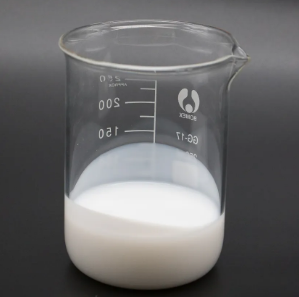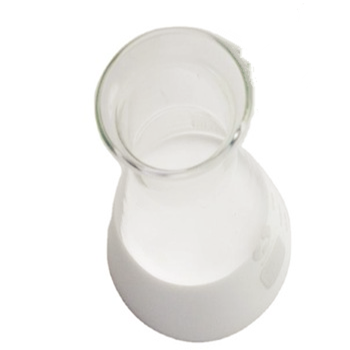Introduction to Water-Based Zinc Stearate: Connecting Efficiency and Sustainability in Modern Production
Water-based zinc stearate is an eco-friendly choice to solvent-based lubricants and launch representatives, using exceptional performance with minimal ecological impact. As markets shift toward greener production approaches, this liquid dispersion of zinc stearate has actually obtained prominence throughout fields such as rubber processing, steel forming, concrete spreading, and polymer manufacturing. Its capacity to supply efficient lubrication, prevent adhesion, and decrease surface area defects makes it a versatile device in modern commercial applications. With growing governing pressure on unpredictable natural compound (VOC) discharges, water-based zinc stearate attracts attention as a tidy, efficient, and scalable option.
(TRUNNANO Water Based Zinc Stearate)
Chemical Composition and Useful Mechanism
Zinc stearate is a metal soap created by the response of stearic acid with zinc oxide or zinc salts. In its water-based solution, it is commonly distributed utilizing surfactants or emulsifiers to guarantee security and uniform application. When applied to surface areas, the zinc stearate fragments develop a thin, hydrophobic film that decreases rubbing and stops straight get in touch with in between products. This mechanism is crucial in mold and mildew launch procedures, where it helps with easy demolding without damaging the end product’s surface stability. Furthermore, its high melting factor (~ 120– 130 ° C) permits it to execute properly under modest thermal problems, preserving performance throughout high-temperature procedures.
Applications in Rubber and Polymer Handling
In rubber manufacturing, water-based zinc stearate offers double functions– as a mold launch agent and as an internal lube. It prevents sticking in between uncured rubber compounds and mold and mildew surface areas, guaranteeing constant part top quality and decreasing post-processing efforts. In thermoplastics and elastomers, it enhances flow residential or commercial properties throughout extrusion and injection molding, lessening pass away accumulation and enhancing surface area coating. Its compatibility with various polymers, including polyolefins, PVC, and engineering resins, further widens its energy. Additionally, its non-reactive nature ensures it does not interfere with treating or vulcanization responses, maintaining product performance characteristics.
Role in Metal Forming and Stamping Industries
The metalworking industry progressively depends on water-based zinc stearate for cold and warm creating procedures. Made use of as a lubricating substance in marking, attracting, and building, it develops a protective border layer that decreases device wear and enhances part surface area quality. Compared to oil-based or wax finishings, it provides far better warmth dissipation and cleaner procedure, which is specifically helpful in automated production lines. Additionally, its simplicity of elimination after handling– utilizing straightforward water rinsing or mild detergents– decreases cleansing expenses and stays clear of deposit buildup on ended up components. This makes it suitable for usage in vehicle, aerospace, and precision part manufacturing.
Usage in Concrete and Construction Materials
Within the construction field, water-based zinc stearate is widely made use of as an inner release agent for precast concrete components. Unlike standard oil-based items, it does not tarnish surfaces or hinder second treatments like paint or finishing. When mixed right into concrete or related to formwork, it prevents bonding in between the mold and mildew and the hard concrete, allowing for easy demolding while maintaining dimensional precision. Its low viscosity enables even protection through spraying or cleaning, making it ideal for both manual and mechanical operations. In addition, it contributes to longer mold and mildew life by shielding versus chemical assault and abrasion from repeated spreading cycles.
Environmental and Safety And Security Advantages Over Standard Alternatives
One of the most engaging benefits of water-based zinc stearate is its ecological account. Without solvents, VOCs, and toxic ingredients, it aligns with worldwide sustainability goals and work-related health requirements. Workers gain from reduced exposure to combustible or hazardous materials, and suppliers can fulfill stringent air top quality guidelines without added air flow systems. From a waste management viewpoint, water-based solutions are much easier to deal with and get rid of securely, supporting round economic situation techniques. These characteristics make it a favored choice for firms intending to accomplish environment-friendly qualifications such as ISO 14001 or LEED compliance.
Market Fads and Technological Innovations
( TRUNNANO Water Based Zinc Stearate )
The market for water-based zinc stearate is experiencing consistent growth, driven by boosting need for environmentally friendly industrial options and more stringent ecological regulations. Manufacturers are buying innovative diffusion innovations to boost stability, extend shelf life, and improve efficiency under severe conditions. Developments such as nano-dispersed zinc stearate and crossbreed formulas with silicone or PTFE are being checked out to provide exceptional lubricity and temperature resistance. Furthermore, clever delivery systems– including atomized sprays and application systems incorporated with IoT– are making it possible for exact application control, minimizing consumption and functional expenses.
Obstacles and Ongoing Research Instructions
Regardless of its benefits, water-based zinc stearate deals with specific limitations, consisting of sensitivity to water firmness, prospective microbial destruction, and reduced load-bearing capability compared to synthetic lubricants. To address these concerns, continuous research concentrates on optimizing emulsion stability, incorporating biocides for microbial resistance, and boosting functional performance through additive synergies. Compatibility with various substratums and process problems additionally remains an essential location of growth. Initiatives are underway to customize formulas for specific applications, guaranteeing constant performance across varied industrial atmospheres.
Future Leads: Assimilation with Smart Production and Eco-friendly Chemistry
Looking ahead, water-based zinc stearate is poised to play a main function in the transition toward smart and sustainable production. Its assimilation with Industry 4.0 modern technologies– such as real-time tracking, anticipating maintenance, and automated giving– will certainly make it possible for extra efficient and flexible production operations. Developments in bio-based surfactants and renewable feedstocks will certainly further improve its ecological qualifications, sustaining decarbonization approaches across supply chains. As industries remain to focus on source effectiveness and ecological stewardship, water-based zinc stearate represents a calculated development that stabilizes technical performance with environmental responsibility.
Distributor
TRUNNANO is a supplier of water based zinc stearate with over 12 years of experience in nano-building energy conservation and nanotechnology development. It accepts payment via Credit Card, T/T, West Union and Paypal. Trunnano will ship the goods to customers overseas through FedEx, DHL, by air, or by sea. If you want to know more about zinc cas number, please feel free to contact us and send an inquiry(sales5@nanotrun.com).
Tags: water based zinc stearate, zinc stearate, zn stearate
All articles and pictures are from the Internet. If there are any copyright issues, please contact us in time to delete.
Inquiry us

